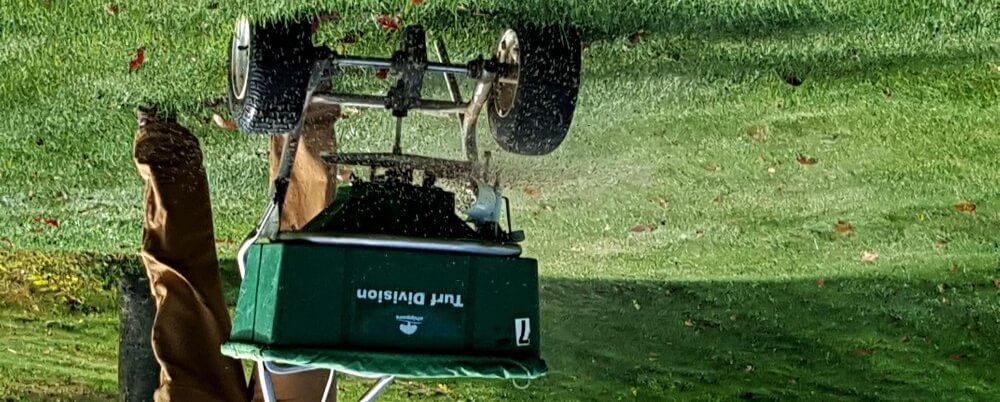Lime in NH or VT is a vital part to any lawn care program for multiple reasons. The most common reason to lime your turf annually is to improve the soil pH. The soils found in NH & VT are acidic in nature with a common pH ranging from 5 to 6, with 7 being neutral. Lime improves this situation by raising the pH since turf grass appreciates a slightly acidic figure- right around 6.7 to 6.8. Another reason to lime relates to how nutrients (N-P-K) react in a soil system. Most are locked up and not available at lower pH figures, especially those found in the 5 range. Therefore, applying lime on a regular basis is not only good for the crop you are trying to grow- in this case turf grass due to preference, but the process actually frees up what would otherwise be locked up nutrients. No wonder farmers often call lime “a poor man’s fertilizer”; it frees those essential nutrients found in fertilizer already in the soil.
There are many types of lime in terms of how quickly they change soil pH, ease of application such as powdered/crushed forms to pelletized. Pelletized lime is usually lime coated with clay in order to help improve the application process. These types of lime usually deal with refined limestone and often function faster versus a crushed rock type of lime. The difference in the pH change can be as much as months to weeks depending upon what type of lime is used. While farmers can afford to wait and may apply lime in the spring or fall in preparation for the following years crop- your lawn could use that change faster since our growing seasons are so short. Pelletized lime also comes in different versions- Magnesium based and Calcium based.
While most lime will have a combination of these two elements since limestone is based upon calcium and magnesium carbonates, the percentage of each dictates whether you have a high calcium lime or a dolomitic lime. You can purchase lime with higher amounts of either calcium or magnesium. Standard pelletized dolomitic lime usually has a higher magnesium content while pelletized high calcium lime is very high in calcium and low in magnesium. Using one or the other is a matter of cost and what you are trying to achieve. Typically, a high calcium lime improves soil structure therefore it helps reduce compaction- this is a generalization but it still applies on the whole. Turf needs large amounts of calcium so this type of lime satisfies that demand over a magnesium based lime. Another benefit of calcium limestone is you need less to achieve the same result as other types of lime and the reaction time is greatly improved to weeks versus months. It is for these reasons that I exclusively use high calcium lime in my turf care program.
High calcium limestone has increased in popularity over the past few years as growers and lawn care companies recognize the multiple benefits and are switching over from standard limestone formulations. High calcium lime also comes coated with an organic acid which improves seed germination- another fabulous benefit.
Soil tests are helpful if your lawn is really messed up and either you or your lawn care company suspects deficiencies or abnormal levels of nutrients which is possible- especially through irrigation systems. However, as a general rule- you should treat your lawn annually to condition your soil for maximum results as pH tends to drop over time due to the environment and surrounding vegetation.
The cost is well worth the expense and effort due to the benefits your lawn will receive with an annual application. On a closing note- you can apply lime at any time of year regardless of what else is being applied. In some cases two lime treatments may be warranted.

Lime is important to your lawn
Tags:
organic
, pine trees
, nh soils
, low pH
, liming your lawn
, dolomitic lime
, crushed limestone
, calcium lime
, upper valley lawn care
, lebanon lawn care
, lawnmaster
, acid soil
, nh lawn care companies
, lawn dawg
, concord lawn care
, turf
, pH
, natural
, Lime
, lawn companies
, chippers

